Faculty Endowed Chairs
Started in 1983 by former Chancellor Richard C. Atkinson, nine endowed faculty chairs have been established by past gifts from Chancellor’s Associates. According to Chancellor Khosla, “Endowed chairs help us to recruit and retain exceptional faculty in a variety of fields and bridge funding gaps in state support. They are vital to our teaching and research mission.”
Chancellor’s Associates Endowed Chairs have been used to fund faculty research, teaching, and scholarly activities throughout campus, from cognitive science and economics to physics and molecular biology.
Learn more about our Chancellor’s Associates Endowed Chairs below.
Chancellor’s Associates Chair I: Margaret Roberts
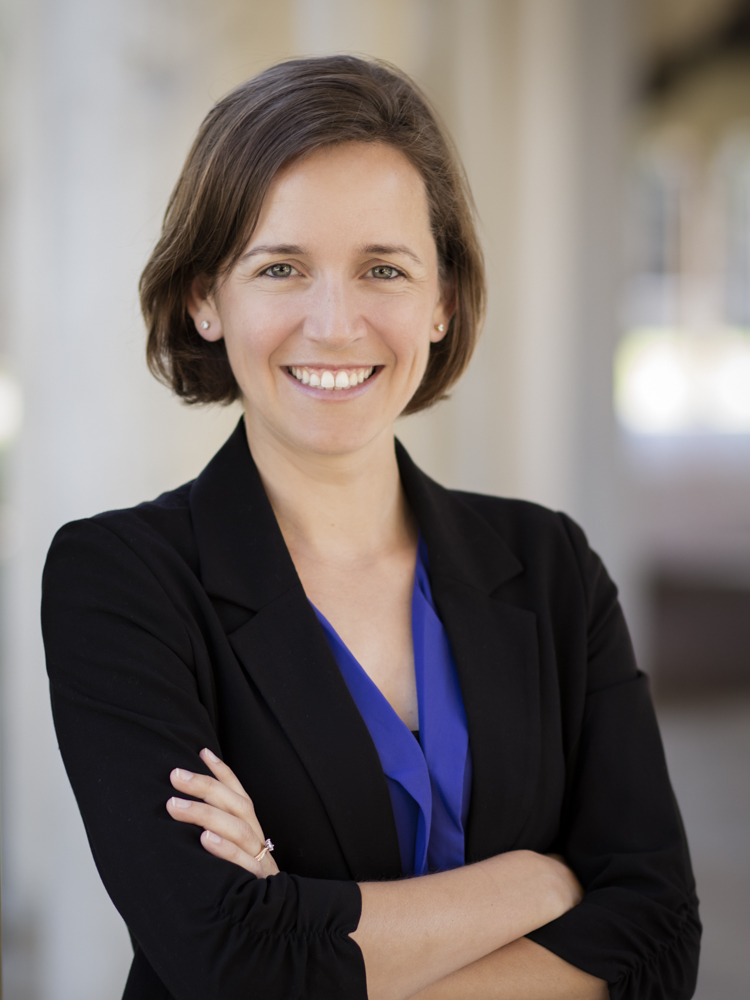 Chancellor’s Associates Chair I is held by Margaret Roberts, an associate professor in the department of political science and co-director of the China Data Lab at the 21st Century China Center. Her research focuses on the intersection of political methodology and the politics of information, specifically methods of automated content analysis and the politics of censorship and propaganda in China.
Chancellor’s Associates Chair I is held by Margaret Roberts, an associate professor in the department of political science and co-director of the China Data Lab at the 21st Century China Center. Her research focuses on the intersection of political methodology and the politics of information, specifically methods of automated content analysis and the politics of censorship and propaganda in China.
Margaret received a PhD in government from Harvard University, and a MS in statistics and a BA in international relations and economics from Stanford University. Her book, Censored: Distraction and Diversion Inside China's Great Firewall, published by Princeton University Press in 2018, was listed as one of the Foreign Affairs Best Books of 2018, was honored with the Goldsmith Book Award, and has been awarded the Best Book Award in the Human Rights Section and Information Technology and Politics Section of the American Political Science Association.
Margaret’s interest in China was sparked by a college visit in which she ended up stranded alone at the airport. There, she met a non-English speaking Chinese couple who had also missed their flight and didn’t know what to do. That encounter, and communicating through a dictionary, triggered Margaret to take Mandarin classes her freshman year and her curiosity about China spiraled from there.
1. Where is your favorite spot on campus?
It’s hard to pick just one. When I need to think about a problem, I run on the eucalyptus running trail, which usually solves it. My second favorite spot is Art of Espresso. It is a really nice coffee shop where you can sit underneath the trees.
2. If you could only eat one meal for the rest of your life, what would it be?
I really like tomatoes, specifically heirloom tomatoes. I like them with a little vinegar like a caprese salad, but without the cheese. I eat them all the time.
3. What is the most interesting thing about you that we wouldn’t learn from your resume alone or that most people don’t know about you?
One thing that I was really into for a long time was conflict resolution. When I was in middle school, they had a conflict resolution training and I took it. Then throughout high school and college, I did a lot of community resolution – where you sit down as a mediator between a parent and a teen, or a victim and an offender, or just two people in conflict for whatever reason. You have a process that you go through to help people come to their own resolution. It taught me all these skills, especially listening. It is very different from what I do now, but I spent an enormous amount of time on it and it is one of the perks of my education that I value the most because I use it all the time.
My experience with conflict resolution is also what led me to start thinking about politics. I was interested in how political conflicts are resolved.
4. What was your dream job growing up?
For a long time, I just wanted to teach and do research. I tried a bunch of different things – working in civil society, working as a pollster, but it was obvious that teaching was a good fit for me. I can think about my own questions and I can decide which questions are important and go after those questions.
5. What is your fondest memory from college?
My favorite memories from college are from the weekends. My three siblings went to college around the same time that I did. We were fortunate to all be in the Bay Area together. We grew up spending a lot of time outside – backpacking, camping, rafting. We would go away on weekend adventures, which was really fun.
I had an amazing college experience, I feel very lucky. I met my husband in college and I still keep in touch with my closest college friends to this day.
6. Knowing what you know now, what advice would you give your 18-year-old self?
When I was 18, I felt like anything where I wouldn’t be good at it that I shouldn’t do it. It took me a while to change that perspective and mindset. Now I really enjoy stepping into new areas and I enjoy the learning curve a lot. I would have told my 18-year-old self “just do what you want to do, explore all of the things!”
With research, you are trying to do something new. That means you are going to fail, you have to for a few times before you finally get it or before you have that little breakthrough. Those breakthroughs are so exciting that the failing is worth it.
7. Who has made the biggest impact on your life? Why?
My parents, they were always taking us places and pushing us to explore the world. They would take us traveling so that we could try different types of experiences and interact with people who live in very different ways. They gave me that attitude to explore, which eventually led me to China.
8. If you could have the answer to any question, what would that question be?
This is more a superpower than an answer to a question, but I would like to get inside someone else’s brain. To be able to actually see how even one other person completely sees the world. I think that would answer so many questions that I have – like why communications break down, why people have very different opinions even though they see the same facts. It would answer a lot of questions about how identity shapes people’s beliefs and people’s opinions.
9. Tell us something about you that is nontraditional.
I eat cereal for dessert. My favorite is Honey Nut Cheerios with dried oatmeal on top and milk. I often have a bowl of cereal before I go to bed, my dad did this too.
10. How do you want to be remembered?
What I aspire to in doing this type of work is trying to seek out truth. That is the goal of research to find some truth and communicate it. Yet, there are so many impediments to doing that. I really believe in freedom of information and I believe in free communication. I hope that my work is seen as helping advocate for that by shedding light on it.
Chancellor’s Associates Chair II: Cristina Della Coletta
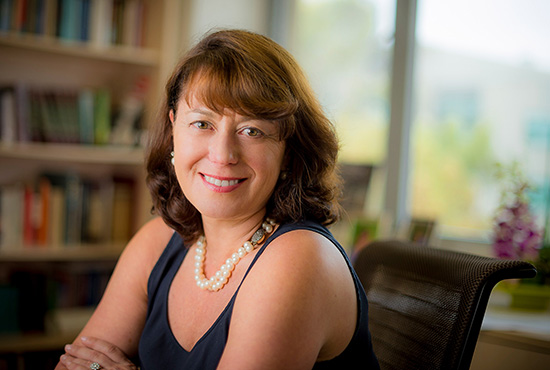 Since Cristina Della Coletta was appointed dean of the UC San Diego Division of Arts and Humanities in 2014, the recognition, prestige and visibility of the entire division has soared. A dedicated advocate of the principles of equity, diversity and inclusion, Dean Della Coletta spearheaded the creation of the Institute of Arts and Humanities, the Institute for Practical Ethics, and the Arts and Community Engagement initiative, with an overall pledge to educate the whole individual: “We do not merely generate knowledge, but create a culture devoted to the application of knowledge for the common good,” she said.
Since Cristina Della Coletta was appointed dean of the UC San Diego Division of Arts and Humanities in 2014, the recognition, prestige and visibility of the entire division has soared. A dedicated advocate of the principles of equity, diversity and inclusion, Dean Della Coletta spearheaded the creation of the Institute of Arts and Humanities, the Institute for Practical Ethics, and the Arts and Community Engagement initiative, with an overall pledge to educate the whole individual: “We do not merely generate knowledge, but create a culture devoted to the application of knowledge for the common good,” she said.
1. Where is your favorite spot on campus?
The library.
2. If you could only eat one meal for the rest of your life, what would it be?
Pizza margherita.
3. What is the most interesting thing about you that we wouldn’t learn from your resume alone (or that most people don’t know)?
I was an equestrian. I had a white horse, and even his name was fairy tale-like: Folletto del Colle Rosso.
4. What was your dream job growing up?
Teacher.
5. What is your fondest memory from college?
The wonder of my first day as an exchange student at UCLA.
6. Knowing what you know now, what advice would you give your 18-year-old self?
Be patient.
7. Who has made the biggest impact on your life? Why?
My husband. He sees things differently from me and he is funny.
8. If you could have the answer to any question, what would that question be?
What will our planet be like in year 3000?
9. Tell us something about you that’s nontraditional.
My research is nontraditional. It combines the humanities and the arts with architecture and engineering, in partnership with UC San Diego’s Cultural Heritage Engineering Initiative and the Polytechnic University of Turin. My collaborators and I are working to create a digital project that includes a 3D reconstruction of the Turin 1911 World’s Fair. The Chancellor’s Associates Endowed Chair is allowing me to expand beyond traditional disciplines and connect the arts and humanities with technology.
10. How do you want to be remembered?
As a champion of equity, diversity, and inclusion.
Chancellor’s Associates Chair III: Susan Golden
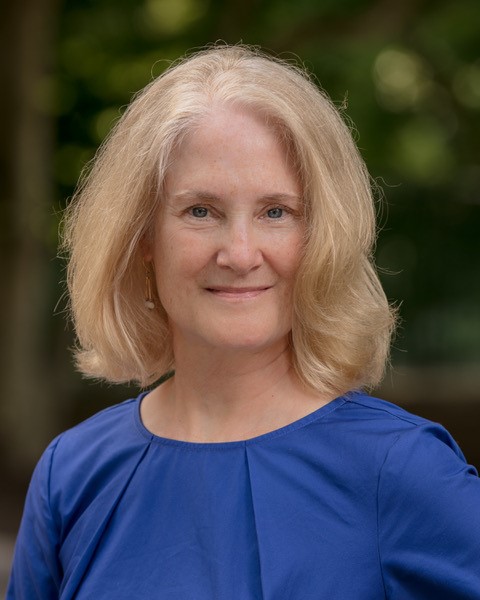 Susan Golden joined the Division of Biological Sciences at UC San Diego in 2008. As director of the Center for Circadian Biology, Susan also created the BioClock Studio, an innovative interdisciplinary course where undergraduates work collaboratively to develop scientific and communication skills while producing creative educational materials on circadian biology. She is passionate about writing and making research understandable, especially to undergraduates and the public. Susan’s research focuses on the cyanobacteria, S. elongatus, which uses a circadian clock to control physiological events and gene expression. She currently is collaborating with her husband, fellow professor, James Golden, on research using the metabolic engineering of cyanobacteria to produce biofuels.
Susan Golden joined the Division of Biological Sciences at UC San Diego in 2008. As director of the Center for Circadian Biology, Susan also created the BioClock Studio, an innovative interdisciplinary course where undergraduates work collaboratively to develop scientific and communication skills while producing creative educational materials on circadian biology. She is passionate about writing and making research understandable, especially to undergraduates and the public. Susan’s research focuses on the cyanobacteria, S. elongatus, which uses a circadian clock to control physiological events and gene expression. She currently is collaborating with her husband, fellow professor, James Golden, on research using the metabolic engineering of cyanobacteria to produce biofuels.
1. Where is your favorite spot on campus?
The terraced area between the Snake Path and Warren Mall. My husband and I like to eat our lunch there and watch the people, dogs, birds, and lizards going about their lives.
2. If you could only eat one meal for the rest of your life, what would it be?
It’s a tie between Thai green curry and Lobster, with a piece of dark chocolate for dessert.
3. What is the most interesting thing about you that we wouldn’t learn from your resume alone (or that most people don’t know)?
I played the bassoon for 7 years when I was a teenager
4. What was your dream job growing up?
I always expected to be a writer, and very briefly majored in journalism before switching to Biology, but I really didn’t have a single path in mind.
5. What is your fondest memory from college?
My ecology class took a field trip to the Mississippi gulf coast. I thoroughly enjoyed it.
6. Knowing what you know now, what advice would you give your 18-year-old self?
Learn to do what you choose to do, and not what others expect you to do.
7. Who has made the biggest impact on your life? Why?
My mother taught me to love reading and learning, and my husband of 40 years has been a partner in both my professional and personal life. I have to credit both of them at the top of the list.
8. If you could have the answer to any question, what would that question be?
Can humanity learn to live rationally, compassionately, and sustainably?
9. Tell us something about you that’s nontraditional.
I’ve been scuba diving in dozens of places around the globe.
10. How do you want to be remembered?
As having helped others achieve their goals.
Chancellor’s Associates Chair IV: Christine Hrycyna
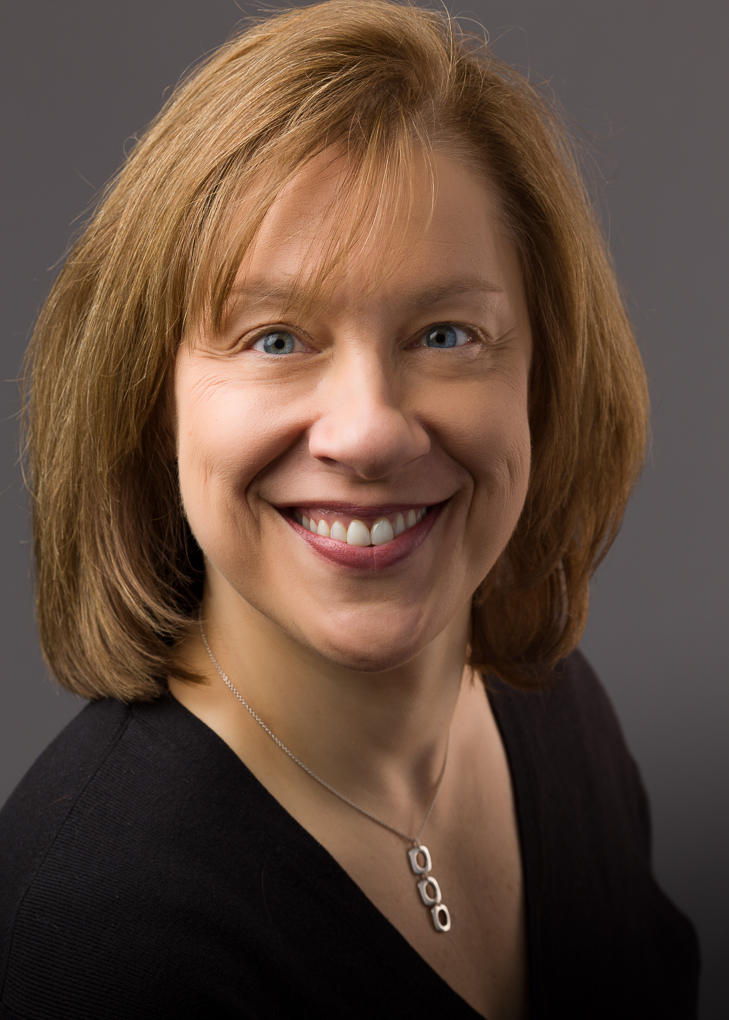
Christine Hrycyna (her-SIN-a) is currently the dean of the School of Physical Sciences and Chancellor's Associates Chair in Chemistry and Biochemistry at the University of California San Diego. Prior to joining UC San Diego, she was the head of the Department of Chemistry in the College of Science and a 150th Anniversary Professor at Purdue University. She also served as associate department head, head of the Biochemistry Division in the Department of Chemistry, head of the Interdisciplinary Life Science Graduate Program, and was a representative on the University Senate and the University Educational Policy Committee. She received her BA in Chemistry from Middlebury College and her PhD in Biochemistry from UCLA. Hrycyna was also a Jane Coffin Childs Postdoctoral Fellow at the NIH.
Her research focuses on the biochemical basis of aging disorders and cancer and the development of new treatments for brain, pancreatic and lung cancers. She currently serves on the editorial board of the Journal of Biological Chemistry and has served as a standing member of the peer review committee on cancer drug development of the American Cancer Society.
Hrycyna received numerous teaching awards at Purdue, including the Murphy Award for outstanding undergraduate teaching and the Arthur Kelly Undergraduate Teaching Award from the Department of Chemistry. She was also active in curricular development, re-envisioning the chemistry sequence for life sciences majors and creating a new joint major in chemical biology with the Department of Biological Sciences.
Chancellor’s Associates Chair V: Paul Niehaus
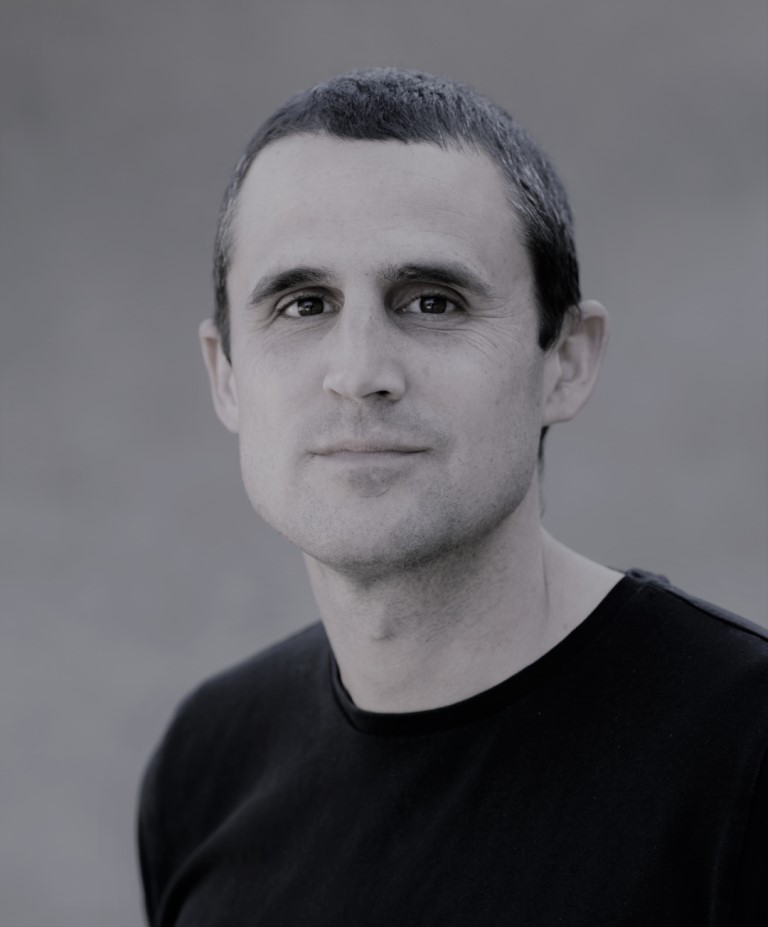
Paul is an economist and entrepreneur working to accelerate the end of extreme poverty.
He is Chancellor's Associates Endowed Chair in Economics at UC San Diego and an affiliate of BREAD, CEGA, J-PAL, and the NBER. His research examines the design, implementation, and impact of anti-poverty programs at large scales. As founder and faculty director of the Gradient Fund at UC San Diego, he supports high social impact research across a range of issues that matter to the universities' partners in public policy-making, philanthropy and the private sector.
He is also co-founder of a series of companies working to amplify capital flows to emerging markets. He is co-founder, former president, and current director at GiveDirectly, the leading international NGO specialized in digital cash transfers and consistently rated one of the most impactful ways to give. He subsequently co-founded and served as a director of the enterprise payments company Segovia and the digital remittance company Taptap Send.
Paul is a recipient of a Sloan Fellowship and has been named a “Top 100 Global Thinker” by Foreign Policy magazine. He holds a PhD in economics from Harvard University.
Chancellor’s Associates Chair VI: Lisa Jones
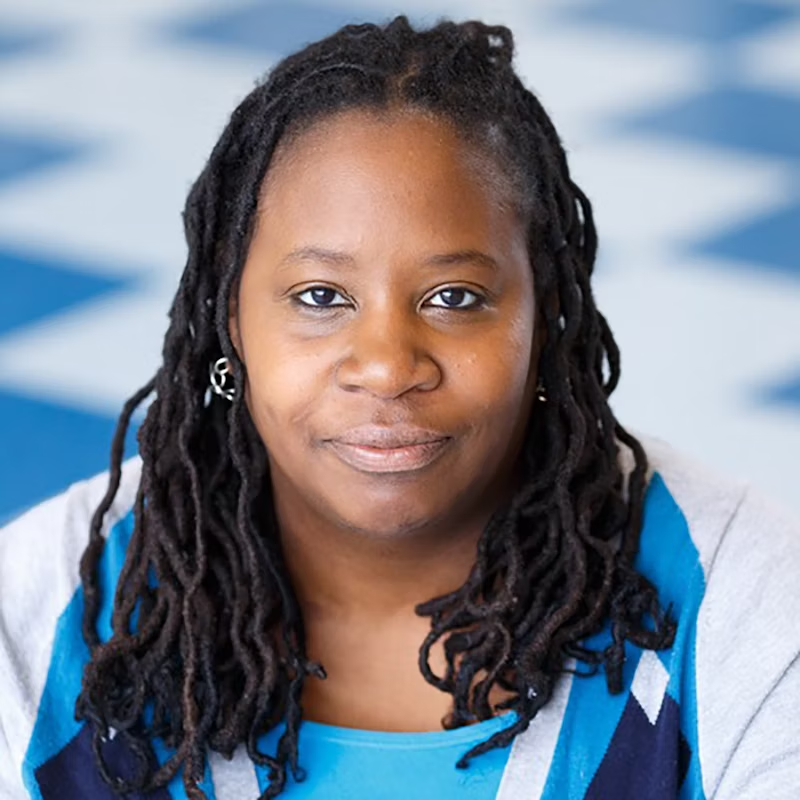
Lisa M. Jones received her PhD in Chemistry from Georgia State University. She received postdoctoral training in structural virology at the University of Alabama-Birmingham and in MS-based protein footprinting at Washington University in St. Louis. Her research is focused on extending the protein footprinting method fast photochemical oxidation of proteins (FPOP) coupled with mass spectrometry into complex model systems. Her lab has extended the method for in-cell analysis to provide structural information across the proteome. She has further developed the method for in vivo analysis in C. elegans, an animal model for human disease. Her lab aims to understand the biological causes of health disparities in cancer and other diseases. She also has a passion for increasing diversity in STEM and participates in several outreach initiatives to achieve this.
Chancellor’s Associates Chair VII: Unfilled
Chancellor’s Associates Chair VIII: Michael Holst
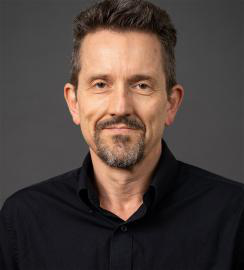 Michael joined the Mathematics Department at UC San Diego in 1998, and also joined the Physics Department in 2009. Michael’s research areas are at the intersection of mathematics and physics, with a focus on partial differential equations (PDE), and with applications primarily in biophysics and general relativity. His research projects center around developing mathematical techniques and computer algorithms for solving PDE problems that arise in nearly every area of science and engineering. A Colorado native, Michael enjoys spending time with his family and his cats, and has a black belt in taekwondo. Said Michael, “The Chancellor’s Associate Chair support has been a really important resource for my work, and it has been an honor to hold this chair since 2012.”
Michael joined the Mathematics Department at UC San Diego in 1998, and also joined the Physics Department in 2009. Michael’s research areas are at the intersection of mathematics and physics, with a focus on partial differential equations (PDE), and with applications primarily in biophysics and general relativity. His research projects center around developing mathematical techniques and computer algorithms for solving PDE problems that arise in nearly every area of science and engineering. A Colorado native, Michael enjoys spending time with his family and his cats, and has a black belt in taekwondo. Said Michael, “The Chancellor’s Associate Chair support has been a really important resource for my work, and it has been an honor to hold this chair since 2012.”
1. Where is your favorite spot on campus?
Art of Espresso (the wonderful Mandeville Coffee Shop).
2. If you could only eat one meal for the rest of your life, what would it be?
Sushi for dinner.
3. What is the most interesting thing about you that we wouldn’t learn from your resume alone (or that most people don’t know)?
I have held my high school’s discus throw distance record for nearly 40 years.
4. What was your dream job growing up?
Guitarist in a rock band or a flamenco group.
5. What is your fondest memory from college?
Meeting my life partner Mai.
6. Knowing what you know now, what advice would you give your 18-year-old self?
Exercise more, eat less, and spend more time with family.
7. Who has made the biggest impact on your life? Why?
My family, because of the love and experiences we all share.
8. If you could have the answer to any question, what would that question be?
How do we build a sustainable future for this planet and all of its inhabitants?
9. Tell us something about you that’s nontraditional.
I have worked for pay in many jobs ranging from farm hand to wedding officiant.
10. How do you want to be remembered?
As someone who was kind and had courage.
Chancellor’s Associates Chair IX: Amanda Datnow
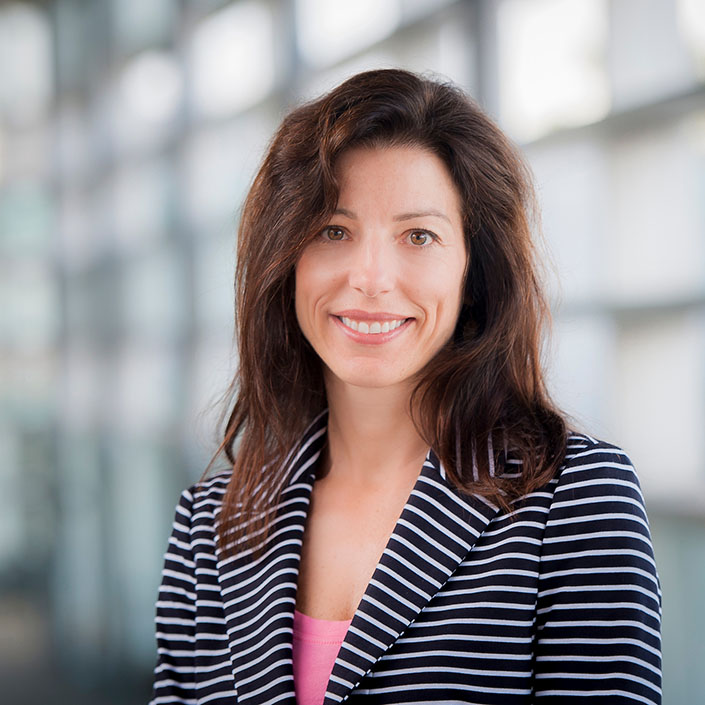 Amanda Datnow is Professor and Chancellor’s Associates Endowed Chair in the Department of Education Studies and Associate Dean of the Division of Social Sciences at the University of California, San Diego. Her research focuses on educational reform and policy, particularly with regard to issues of equity and the professional lives of educators. Over the past decade, she has conducted numerous studies examining the use of data for instructional improvement, teacher collaboration, and leadership, as well as projects aimed at transformative educational change. She is also engaged in research-practice partnerships with local districts. Datnow’s work has been widely published in leading journals, and she is the author of eight books. Her most recent books are Professional Collaboration with Purpose: Teacher Learning for Equity and Excellence (2019) and Data Driven Leadership (2014), coauthored with Vicki Park. She serves on numerous journal editorial boards, as well as on boards and committees that promote equity and excellence in public education. She is deeply committed to impacting policy and practice and works with a variety of local, national, and international organizations to realize this goal.
Amanda Datnow is Professor and Chancellor’s Associates Endowed Chair in the Department of Education Studies and Associate Dean of the Division of Social Sciences at the University of California, San Diego. Her research focuses on educational reform and policy, particularly with regard to issues of equity and the professional lives of educators. Over the past decade, she has conducted numerous studies examining the use of data for instructional improvement, teacher collaboration, and leadership, as well as projects aimed at transformative educational change. She is also engaged in research-practice partnerships with local districts. Datnow’s work has been widely published in leading journals, and she is the author of eight books. Her most recent books are Professional Collaboration with Purpose: Teacher Learning for Equity and Excellence (2019) and Data Driven Leadership (2014), coauthored with Vicki Park. She serves on numerous journal editorial boards, as well as on boards and committees that promote equity and excellence in public education. She is deeply committed to impacting policy and practice and works with a variety of local, national, and international organizations to realize this goal.